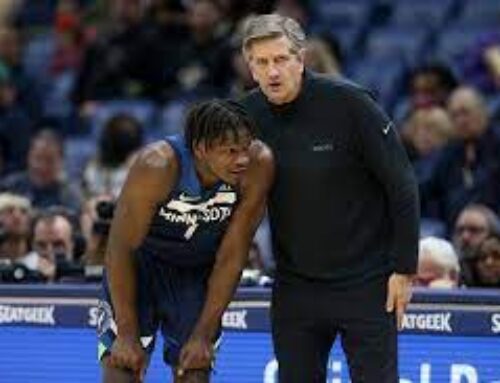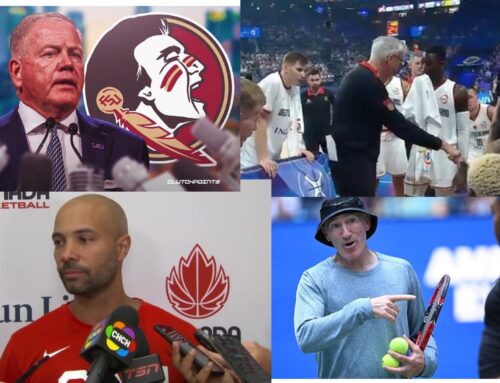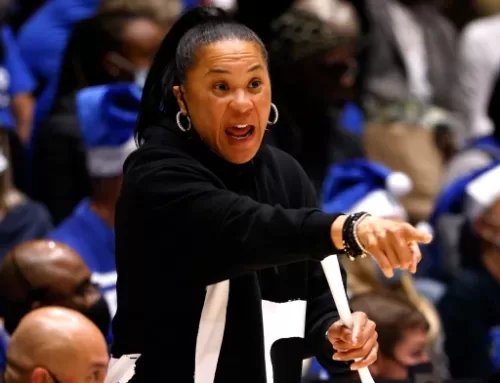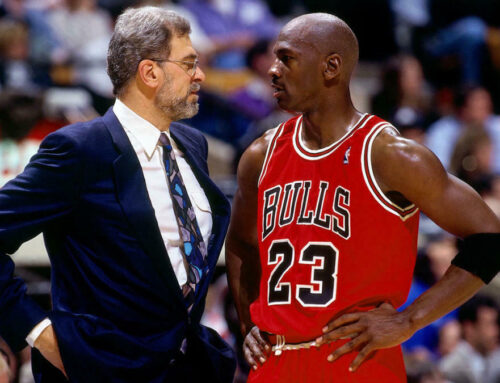The coaching skills required to THRIVE!
Those of us who work in sport know so much about the athlete developmental journey. What it takes to build a champion, is not only a constant topic of discussion, but it has been researched by hundreds of scholars and high performance experts. Interestingly, it does not seem we have done the same for coaches.
In my 30 years of working in sport, one conclusion I have drawn is that we do not fully appreciate the scope of skills required to be a great coach, nor do we prioritize the development of these.
For most of us who love sport, we understand the pressure on coaches to win. We also understand that they need to be a “master of their sport”, talk the language and know how to motivate their athletes to perform well, under pressure. What we have yet to conquer is an understanding of the complex series of additional, non-sport skills that all successful coaches must master. Most of these aren’t “in the manual” as the young coach works their way through the coaching pathway.
Examples of these include:
- Conflict management
- Innovation
- Program assessment
- Storytelling (Go see Jason Thompson at www.jasonthompson.ca if you want a leg up on other coaches!)
- Understanding how emotions drive our leadership behavior
Master coaches, committed learners


I have had the good fortune of witnessing elite coaches commit to their personal development and be significantly rewarded, sometimes with help from others, and oftentimes through their own initiative. Troy Ryan, current Head Coach of the Canadian Women’s Ice Hockey Team (World Champions as of a few days ago) as well as Nick Nurse, Head Coach of the Toronto Raptors (2019 NBA World Champions) and Canada’s National Men’s Basketball Team are great examples of this. I’ve worked with both and have been a part of a development program that Troy participated in. They are both lifelong learners who have owned their development and benefited from the support of others. There is no denying that creating an environment for coaches like Troy and Nick to thrive, from a developmental perspective, can lead to healthy spaces for athletes, peer coaches and staff.
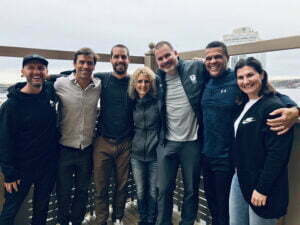
Doing it right
Currently, I am working with a group of young national team coaches, many of whom are coming of a successful athletic career and rubbing their hands with glee as they enter the coaching world. Fortunately, they are embedded in a sophisticated development program that will allow them to get off on the right foot. This experience is providing them with a critical developmental experience that could set them up to be a profoundly impactful coach (many are already). For most coaches, this opportunity isn’t part of the “launch pad” towards a sustainable coaching career. It is common to be thrown in the deep end and those who swim, thrive and those that don’t, struggle. In these instances, it is imperative that the folks “in charge” pay just as much attention to the coach’s development as to their wins and superb performances from their athletes.
What if we treated our coaches like athletes?
As a means to encourage sport organizations who haven’t landed on an effective coach development plan to consider the following: isn’t it fitting to think deeply about the development we provide coaches to the development we provide athletes? There is no doubt that most sports organizations have a thorough understanding of the importance of effectively supporting athletes.
Most ensure athletes:
- are fed properly and encouraged to get adequate sleep every day
- have trained for days, weeks and years in a targeted, effective way
- are provided regular, constructive feedback, often customized to their personality type
- have the very best equipment
- are filled with confidence leading into competition



This is a great list, but what do we do for the coach? Are we as clear what the coach needs to develop in order to succeed as compared to what we know about the athletes’ developmental needs? Shouldn’t coaches be treated like the elite quarterback, the star goalie, the great sprinter? Don’t we want the best from them on game day? Who has more impact than the coach?
Challenge for the day. If you lead a coach take one step today, this week, this year to treat them like an elite athlete and see what happens. It is highly likely that the impact will be positive and isn’t that what we are all striving for? You might conclude that you are already doing your very best to support your coach given your environment or you might find a new way to make them even better! And keep in mind that each coach is unique – truly impactful coaching development must be customized to the individual.

Give a gift. If you don’t lead a coach but are around one regularly, stop and think about the complexity of their role and give them a gift – what can you do to help them perform their complicated job even better? It might be as simple as a genuine, “thank you”.
And if you are a coach, high-five, my friend! Your job in all of this is to continue to master the challenges within your role and ask for help when you need it.
Currently, RW Sport is working with coaches in Canada, Australia and the USA to help them raise their game. However, the most impactul coach developer in the system is the coach’s line-manager. Reach out to RW Sport if you would like to chat about how you can raise your game in support of your coaches.
